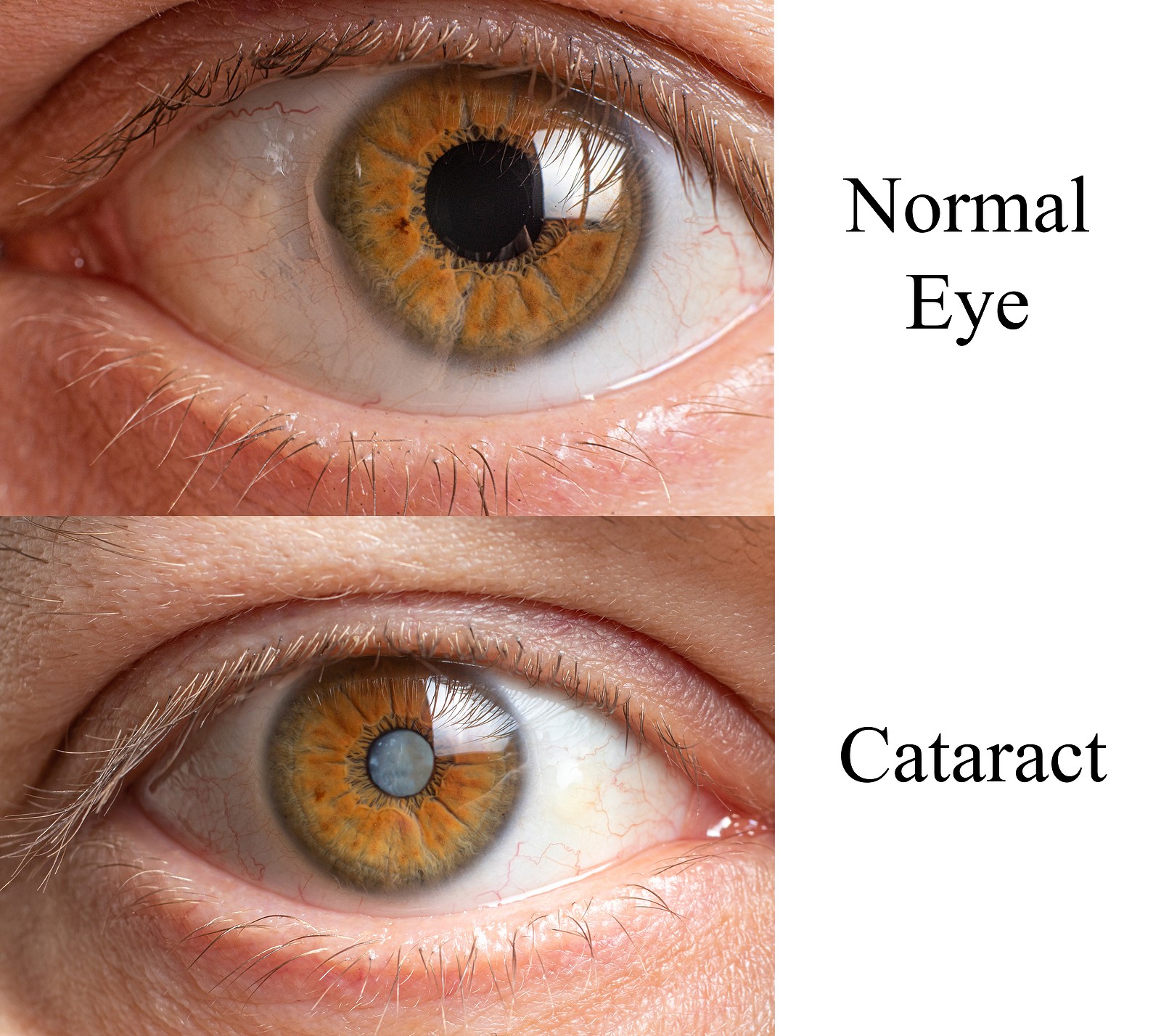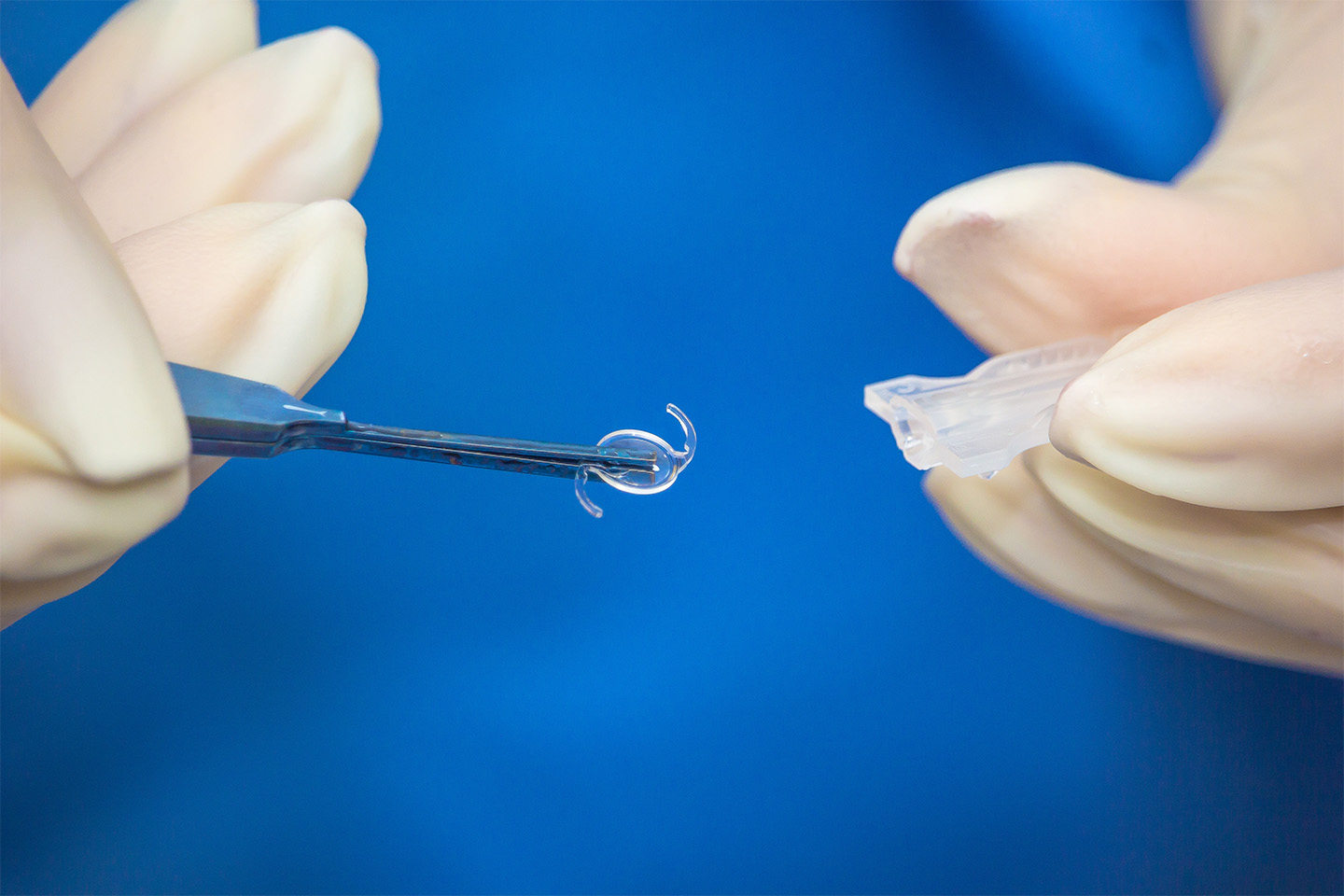10 Common Questions About Cataracts

Having cataract surgery can be a watershed moment in your later life. Cataracts can significantly decrease your vision, but after a simple operation, you can see clearly again. It’s often better than before surgery depending on the implanted IOL lenses you choose.
1. What causes cataracts?
Research suggests that cataracts develop due to oxidative changes in the eye’s lens that cause protein build-up. Cataracts tend to appear later in life, but diabetes, UV rays, hypertension, and smoking can increase the risk. Medications used over time such as corticosteroids, hormones, or statins can also be factors. Other eye surgeries, such as retina surgery, can also cause cataracts to appear sooner.
2. What are the types of cataracts?
The three most common types of cataracts you may develop are:
- Nuclear sclerotic: The center of the lens becomes progressively cloudy over the yearsIt’s the most common type. Near vision may appear to improve at some point as it often causes patients to become more near-sighted
- Cortical: Develops from the outer parts of the lens and grows inward in “spokes” towards the center. Diabetes is a common risk factor for this type.
- Posterior Subcapsular: A faster-developing type, often over just months, that most often affects the back of the center of the lens. This type tends to decrease vision the most and can cause debilitating glare. Risk factors include diabetes and prolonged steroid use.
3. When should you have cataracts removed?
It’s time to think about cataract surgery when your vision and daily activities are becoming impaired, including trouble reading or driving. Noticing glare that prevents you from driving, especially at night, is also a sign that it may be time for surgery. Blurriness, distortion, and difficulty perceiving contrast are also signs to visit your eye doctor for an exam and talk about cataract removal.
4. Is it better to have cataract surgery early?
In addition to permanently restoring your vision quality, early cataract surgery, performed on immature cataracts, can be simpler with a shorter recovery. Avoid waiting until they reach the hyper-mature stage, when your vision is significantly affected as the surgery will be more complicated.
5. How can you prevent cataracts from getting worse?
Reducing risk factors by quitting smoking and controlling blood sugar for diabetics can help slow the progression of cataracts. Wearing UV protection when out in the sun can also help. In addition, an eye-healthy diet rich in antioxidants such as vitamins C and E including citrus and tomatoes may help as well.
6. How long does cataract surgery take?
The most common type of cataract surgery, called phacoemulsification, takes as little as ten minutes to access the lens by traditional or laser incision, break it up, remove it, and insert a replacement lens or IOL. The total visit on the day of surgery is usually about two-and-a-half hours. If both eyes require surgery, it will be on separate days about a week apart.
7. Does cataract surgery give you 20/20 vision?
With no other conditions, cataract surgery including a replacement IOL can give you 20/20 vision. Depending on which option you choose, you may still need glasses both for distance and near to achieve 20/20 vision. Laser assisted cataract surgery with a monofocal lens can provide patients with 20/20 distance vision without glasses. More advanced IOL choices such as the PanOptix trifocal lens can provide excellent vision over an extended range, even if you wore glasses before the surgery.
8. Can you get rid of cataracts without surgery?
Sometimes, we can improve a patient’s vision temporarily by updating their eyeglass prescription. However, there is no way to reverse cataracts without surgery. Cataracts develop naturally over time and tens of millions of people have cataract surgery each year because it’s their best option for restoring clear sight.
9. Do’s and don’ts before cataract surgery?
Don’ts, as instructed by your doctor:
- Refrain from eating or drinking 12 hours before surgery.
- Adjust your medications that may affect bleeding as instructed. You do NOT need to stop your medications prior to surgery.
- Avoid applying makeup, lotions around the eyes, or perfume before surgery and for one week after.
Do:
- Arrange for someone to take you home.
- Plan for limited activity over the next few days.
- Relax and prepare for the simple follow-up care.
10. What is cataract surgery recovery like?
Recovery from cataract surgery is fairly quick in most cases. Patients should expect blurred vision right after the surgery though with improvement over the course of about one week. Redness or bruising on the eye is normal as well which will improve over a few days. You’ll visit the doctor after about a day to check on progress, and be fully recovered, in most cases, within a month. Patients must also avoid lifting anything weighing over 20 pounds and bending at the waist for 1 week after surgery.
Kleiman Evangelista, Your Best Resource for Information on Cataract Surgery in Dallas
At Kleiman Evangelista, we have top eye doctors and a team that’s highly experienced with advanced ophthalmology, including laser-based procedures such as LASIK, PRK, and laser-assisted cataract removal. We’re ready to help you feel comfortable and well-informed when you are planning your cataract surgery in Dallas. Let us know how we can help, including regular eye exams where you can discuss your concerns about cataracts and other eye health issues. Call for an appointment today.









